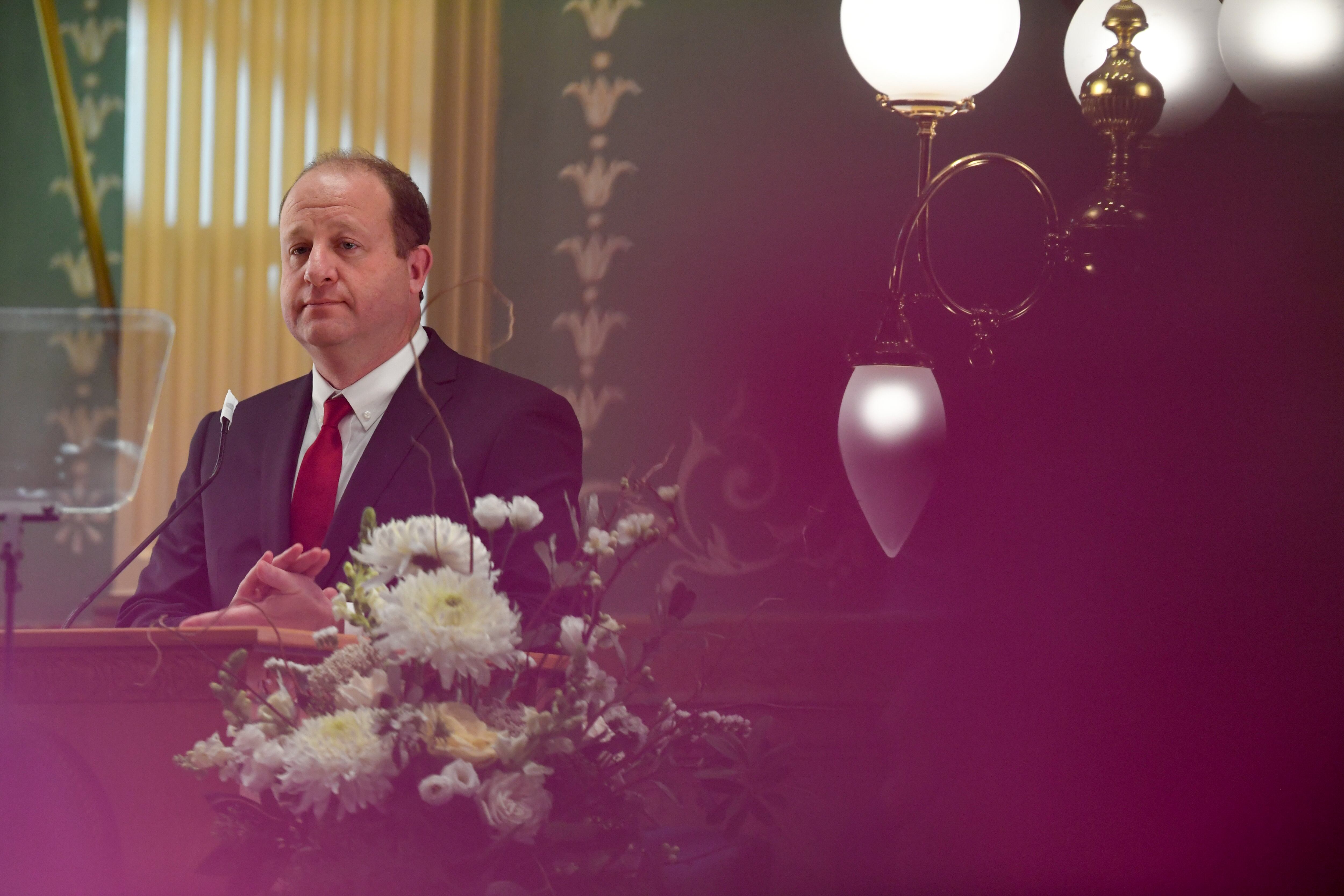Gov. Jared Polis on Tuesday proposed a more than $9 billion budget for pre-K-12 Colorado education in 2023-24 that would increase per-pupil student funding by 9%.
In comparison, Polis proposed a lower increase to the state’s investment in public colleges and universities. While intended to temper tuition increases, the additional state aid will not keep up with inflation.
Funding for education — K-12, higher education, and early childhood programs — makes up the largest single share of the $42.7 billion state budget proposal that Polis unveiled.
Polis’ pre-K-12 proposal would boost the state education budget by $704 million. But on education, the state gives with one hand and takes back with the other, so Polis’ total school budget for next fiscal year would come to about $9.1 billion. That would bring the per-pupil allocation to $10,421.
While that is higher than in the past, it’s also a function of Colorado’s declining enrollment — fewer students means more money per pupil. Most of the funding will go directly to school districts.
“It’s really important we decrease classroom size and compensate for learning loss,” the governor said Tuesday.
The governor also proposed about $86 million more for college operating expenses and financial aid. Polis said that the increase would enable colleges to hold tuition increases to 4% for 2023-24.
Republican gubernatorial candidate Heidi Ganahl, who is running against Polis for governor, said in a statement that she thinks Polis’ budget is too large and would audit state’s spending if she wins election.
The governor must deliver a budget proposal every year by Nov. 1. Lawmakers on the six-member Joint Budget Committee, which has the most say on the budget, are expected to make significant changes once the legislative session starts next year.
The shifting economy, with a possible recession on the horizon, could drastically change how lawmakers build off Polis’ proposals.
State Rep. Julie McCluskie, a Dillon Democrat who heads the Joint Budget Committee, said Polis provided a “fiscally responsible” proposal for lawmakers to begin their work.
“Coming out of the pandemic — the concerns with learning loss — it is important that we have this level of increased investment,” she said.
She said lawmakers will need to take a deep look at how the economic forecast will impact the state’s coffers.
Colorado’s constitution sets minimum state investments for K-12 spending, but for years the state has fallen below those thresholds.
Polis’ proposal would reduce how much the state withholds from schools — known as the budget stabilization factor — down to 3%. That’s $35 million less than last year’s $321 million the state withheld from total education spending, and would be the lowest level since 2009-10.
Polis said his proposal builds on investments in the current fiscal year that budgeted $8.4 billion for K-12 schools, withholding 3.82% for the BSF.
The Colorado Education Association in a news release commended Polis for his investment in schools, but also pushed to eliminate the withholding altogether. The unpaid obligation adds up to nearly $10 billion that Colorado schools should have gotten but didn’t.
“A fully-funded education system would mean attracting and retaining more educators, smaller class sizes, safer schools equipped with ample mental health professionals — all of which lead to better student outcomes for all students,” said Amie Baca-Oehlert, a high school counselor and Colorado Education Association president, in a statement.
Other highlights of Polis’ budget:
- $340 million to start universal preschool for the state’s 4-year-olds, funded by Proposition EE, a statewide nicotine tax.
- A $29 million increase for special education services in schools.
- $84 million for school security. About $6 million will fund grants to schools. The state would spend $2.1 million to create an Office of School Safety.
- $6 million to continue the I Matter program that provides free counseling services for kids.
- A $3 million increase for the public-private Colorado Opportunity Scholarship Initiative for tuition assistance and support for students.
Polis recommended a historically high 15% general fund reserve as a hedge against a possible recession next year.
Tracie Rainey, Colorado School Finance Project executive director, said plenty might change in the coming months.
“I think that’s always the concern out there is that the economy slows down or inflation stays high,” she said.
Jason Gonzales is a reporter covering higher education and the Colorado legislature. Chalkbeat Colorado partners with Open Campus on higher education coverage. Contact Jason at jgonzales@chalkbeat.org.






